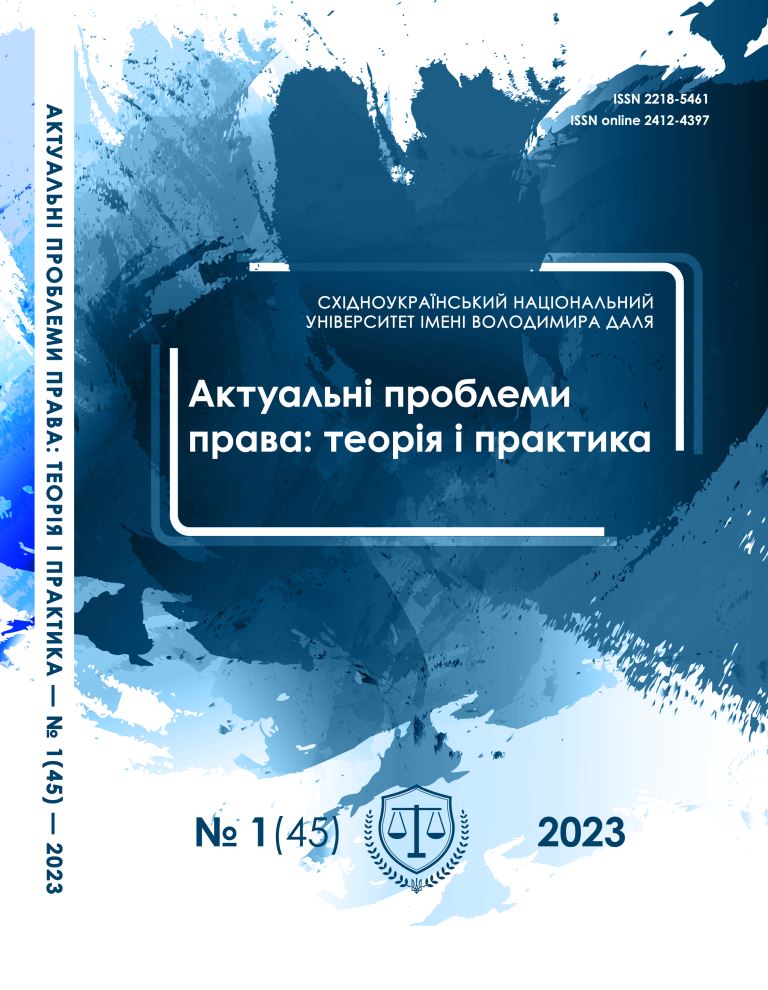THE ROLE OF THE EUROPEAN COURT OF HUMAN RIGHTS IN RESOLVING THE ISSUES OF SEPARATISM: ANALYSIS OF DECISIONS OF THE ECtHR IN CASES OF INTERSTATE CONFLICTS
DOI:
https://doi.org/10.33216/2218-5461/2023-45-1-60-68Keywords:
European Court of Human Rights, separatism, human rights, interstate conflict, Ukraine, the Netherlands, the Russian Federation, ECtHR decisionsAbstract
This scientific article is devoted to the role of the European Court of Human Rights (ECtHR) in ensuring human rights in the context of separatism, in particular, on the example of the case "Ukraine and the Netherlands against the Russian Federation". The work includes an overview of separatist movements in Ukraine and the government's response to these movements, as well as an analysis of the ECtHR's role in the case and its decision. The article aims to analyze the impact of the decision of the ECtHR on the development of the legal space in Europe and draw conclusions and recommendations regarding the possible application of the experience gained from this case in other similar situations. Decision of the ECtHR regarding the exercise of extraterritorial jurisdiction by Russia in the regions controlled by separatists in the east of Ukraine, we believe that for the entire practice of resolving interstate disputes in cases related to separatism, the above interpretations have significant consequences beyond the boundaries of the case Ukraine and the Netherlands against Russia and related individual cases. First, the ECtHR clearly stated that the presence of armed confrontation and hostilities does not exclude the exercise of extraterritorial jurisdiction by the state and, therefore, the application of the Convention. This approach is likely to be followed in other cases of armed conflict where clear cases of territorial or personal control occur in the context of active hostilities. As I've argued before, Russia's full-scale invasion of Ukraine in 2022 is an example of such a situation. Secondly, the conclusions of the ECtHR, based on a detailed examination of the evidence, shed the necessary light on the true extent of Russia's support for separatists operating in the eastern regions of Ukraine. The fact that Russia significantly influenced the military strategy, supplied weapons and directed the actions of separatist armed groups not only shows that the armed conflict between Ukrainian government forces and separatist armed groups was never purely internal in nature. It may also be crucial to the qualification of an armed conflict as international since 2014, at least according to the general control test used in international criminal law. Finally, the ECtHR's decision that the entire separatist operation was directed and coordinated by Russia from the very beginning debunks the Russian myth about any supposedly genuine separatist movement in the eastern regions of Ukraine.

